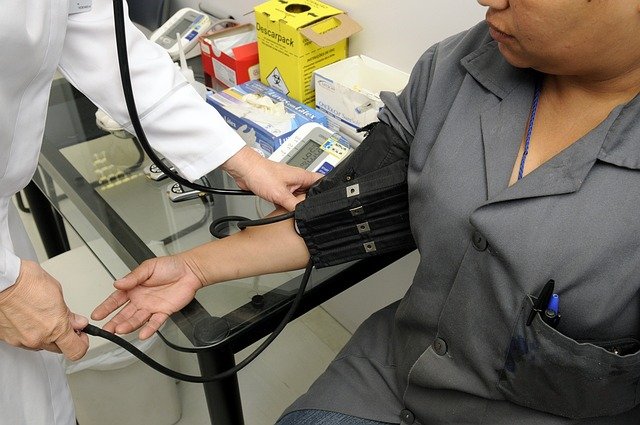Understanding Colon Health: Early Warning Signs and Treatment Options That Matter
Colon cancer often starts silently, but certain signs can help catch it early. This guide breaks down the most important symptoms, screening tools, and treatment paths available today. Learn how early action and simple lifestyle shifts can help protect your long-term colon health.

What are the common signs of colon cancer by age group?
Colon cancer can affect individuals of all ages, but certain symptoms may be more prevalent in different age groups. For younger adults (under 50), key signs include persistent abdominal pain, unexplained weight loss, and changes in bowel habits. In the 50-75 age range, symptoms might include rectal bleeding, narrowing of stools, and increased fatigue. For those over 75, anemia, loss of appetite, and unexplained weakness are common red flags. It’s important to note that these symptoms can vary and may not always indicate cancer, but they should prompt a discussion with a healthcare provider.
How does a colonoscopy work, and what can patients expect?
A colonoscopy is a crucial screening tool for colon cancer. During the procedure, a long, flexible tube with a camera is inserted into the rectum to examine the entire colon. Patients are typically sedated to ensure comfort. Before the procedure, a thorough bowel preparation is required, which involves consuming a special diet and laxatives to clear the colon. The actual exam usually takes about 30-60 minutes. Doctors can remove polyps or take biopsies during the colonoscopy if necessary. After the procedure, patients may experience mild bloating or cramping but can generally return to normal activities the next day.
What are the current treatment options for colon cancer?
Treatment for colon cancer has advanced significantly in recent years. The primary options include surgery, chemotherapy, and radiation therapy. Surgery is often the first line of treatment, involving the removal of the tumor and surrounding tissue. For early-stage cancers, minimally invasive techniques like laparoscopic surgery may be used. Chemotherapy can be administered before surgery to shrink tumors or after surgery to kill remaining cancer cells. Targeted therapy and immunotherapy are newer approaches that focus on specific cancer cell properties or boost the body’s immune response. The choice of treatment depends on the cancer stage, location, and individual patient factors.
Which foods can support colon health and recovery?
Diet plays a crucial role in maintaining colon health and supporting recovery after treatment. High-fiber foods like whole grains, legumes, and vegetables help promote regular bowel movements and reduce the risk of colon cancer. Fruits rich in antioxidants, such as berries and citrus, can support overall health. Lean proteins, including fish and poultry, provide essential nutrients without the potential risks associated with red meat consumption. Probiotic-rich foods like yogurt and kefir can help maintain a healthy gut microbiome. It’s also important to stay hydrated and limit processed foods, alcohol, and excessive red meat intake.
What are the latest advancements in colon cancer screening and prevention?
In the United States, recent advancements have expanded colon cancer screening options beyond traditional colonoscopy. Non-invasive stool-based tests, such as the fecal immunochemical test (FIT) and multi-target stool DNA test, offer convenient at-home screening alternatives. Virtual colonoscopy, using CT imaging, provides a less invasive option for some patients. Additionally, research into blood-based tests for early detection is showing promise. Prevention strategies now emphasize the importance of maintaining a healthy lifestyle, including regular exercise and a balanced diet, alongside timely screenings starting at age 45 for average-risk individuals.
How do treatment costs and insurance coverage vary for colon cancer?
Treatment costs for colon cancer can vary widely depending on the stage of cancer, type of treatment, and geographical location. In the United States, the total cost of care can range from tens of thousands to hundreds of thousands of dollars. Here’s a general overview of potential costs:
| Treatment Type | Estimated Cost Range | Typical Insurance Coverage |
|---|---|---|
| Surgery | $30,000 - $150,000 | 60-90% after deductible |
| Chemotherapy | $10,000 - $200,000 | 80-90% after deductible |
| Radiation | $20,000 - $80,000 | 80-90% after deductible |
| Immunotherapy | $100,000 - $300,000+ | Varies, often 70-80% |
Prices, rates, or cost estimates mentioned in this article are based on the latest available information but may change over time. Independent research is advised before making financial decisions.
Most health insurance plans cover colon cancer treatments, but out-of-pocket costs can still be significant. Patients should work closely with their healthcare providers and insurance companies to understand coverage details and explore financial assistance programs if needed. Some cancer centers offer comprehensive care packages or participate in clinical trials that may reduce overall costs.
In conclusion, understanding the early warning signs of colon cancer, the importance of regular screenings, and the available treatment options is crucial for maintaining colon health. By staying informed about the latest advancements in prevention and treatment, and making lifestyle choices that support colon health, individuals can take proactive steps to reduce their risk and improve outcomes if faced with a colon cancer diagnosis. Remember, early detection and timely intervention are key factors in successfully treating colon cancer.




